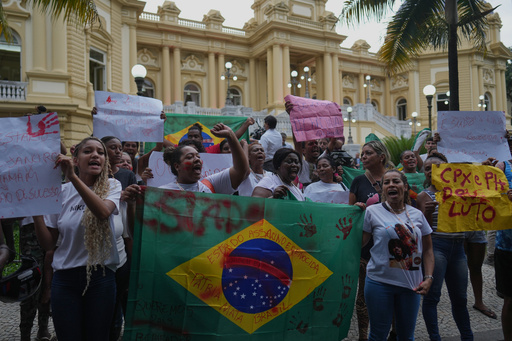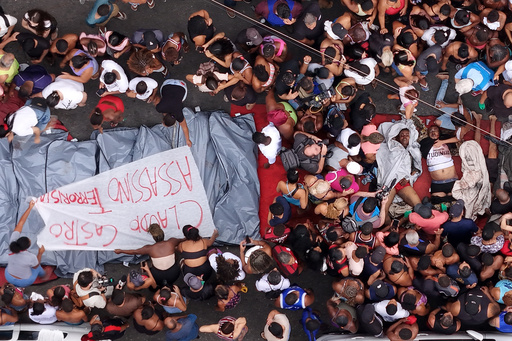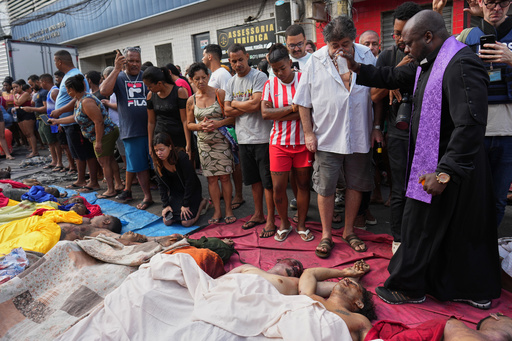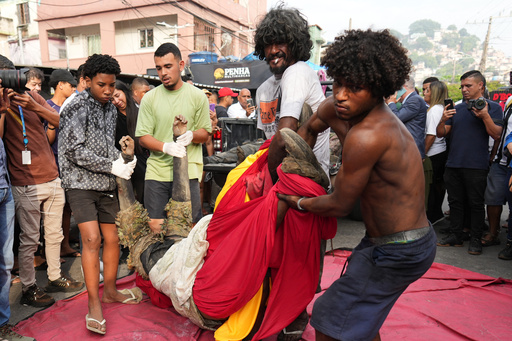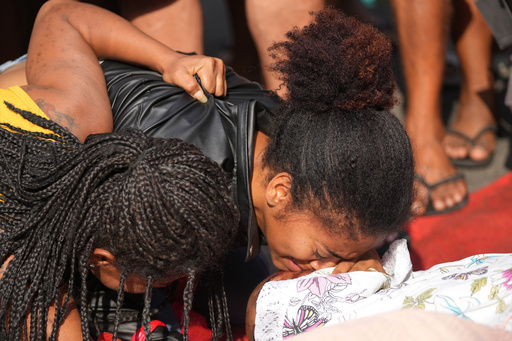Death toll from Rio de Janeiro police raid on drug gang rises to 121
News > Top Stories

Audio By Carbonatix
7:21 AM on Thursday, October 30
By ELÉONORE HUGHES and GABRIELA SÁ PESSOA
RIO DE JANEIRO (AP) — The death toll in a major police raid targeting a drug trafficking gang in Rio de Janeiro has risen to at least 121 people, authorities said Thursday morning.
The operation began Tuesday in two of the city’s favelas, sparking intense gunbattles. An unknown number of people were wounded. Among the dead were four police officers, according to officials.
The number of dead rose from 119 to 121, but further details on the two new deaths weren’t immediately available.
Human rights organizations have called for investigations into the deaths, describing the operation as one of the most violent in Brazil’s recent history.
Police said that the raid followed a yearlong investigation into the Red Command criminal gang, which controls drug trafficking and other illicit activities in the low-income communities of Complexo do Alemao and Penha. The group originated in Rio’s prison system and has expanded its influence in recent years.
During the operation, officers arrested 113 people, seized 118 weapons and confiscated more than a ton of drugs, police said.
The violence disrupted daily life in the affected neighborhoods. Schools closed, a local university canceled classes, and buses were used to block roads.
Rio has long been the scene of deadly police raids. In March 2005, 29 people were killed in the Baixada Fluminense region, which borders Rio. In May 2021, 28 died in a raid in the Jacarezinho favela.
However, the scale of Tuesday’s operation was unprecedented. The action sparked protests and accusations of excessive force and calls for the resignation of Rio’s governor.
On Thursday morning, community leaders in Penha gathered at the headquarters of favela rights group CUFA to prepare legal support for grieving families. Many shops remained closed, and the atmosphere was somber.
The police operation stirred national political debate. Rio de Janeiro Gov. Cláudio Castro initially accused the federal government of failing to offer assistance.
Justice Minister Ricardo Lewandowski responded by saying he hadn't received any request for help. He also defended the approval of a bill stalled in Congress that would integrate state police intelligence systems nationwide, a measure analysts see as a strong response to organized crime.
Castro is affiliated to the same party as former President Jair Bolsonaro and is part of the opposition to President Luiz Inácio Lula da Silva.
Lula’s opponents sought to link his government to the raid. Sen. Flávio Bolsonaro, one of Jair Bolsonaro’s sons, posted a video claiming that Lula had abandoned Rio de Janeiro.
The government sent representatives to the state on Wednesday and announced the creation of an emergency office to combat organized crime in Rio de Janeiro.
On Thursday morning, Lula signed a law that the government said strengthens the fight against organized crime. The new law criminalizes conspiracy and obstruction of actions against criminal groups and increases protection for public officials and their families, including retirees, as long as they are at risk because of their professional duties.
Senate President Davi Alcolumbre also announced Thursday morning that a Senate committee will begin investigating the structure, expansion and operations of organized crime in Brazil starting next week.
___
Gabriela Sá Pessoa reported from Sao Paulo.
___
Follow AP’s Latin America coverage at https://apnews.com/hub/latin-america
